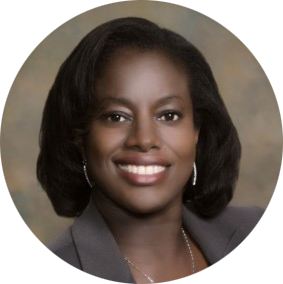Rose Rameau FCIArb
Rose Rameau is an American lawyer and the Founding Partner of RAMEAU INTERNATIONAL LAW, a boutique firm specializing in public and private international law and white-collar defence investigations. She has over 20 years' experience in international arbitration, mediation, investor-state treaty-based dispute, and cross border disputes combined. She advises and represents sovereign states and companies on cross-border disputes. She has been appointed Sole Arbitrator, Co-Arbitrator and President of Tribunal by investors and sovereign states. Rose Rameau was a Fulbright Scholar at the University of Ghana School of Law from 2014-2016 where she taught Investment law and International Commercial Arbitration. She is trained in civil and common law. Ms. Rameau is an ICC Court Member and a Member of the Permanent Court of Arbitration.

She is a Fellow of the Chartered Institute of Arbitrators in the UK and Member of the International Arbitration Institute, Paris, France. She is listed as International Arbitrator at the Shanghai Arbitration Commission (SHAC), the Shenzhen Court of Arbitration (SCIA), Arbitration Foundation of Southern Africa (AFSA) , the Cairo Regional Centre for International Commercial Arbitration in Egypt (CRCICA), the Common Court of Justice and Arbitration of OHADA, Abidjan, Côte d’Ivoire (CCJA), the Chambre de Conciliation et D’Arbitrage d’Haiti (CCAH), the British Virgin Islands International Arbitration Centre (BVI-IAC), the American Arbitration Association-International for Dispute Resolution (AAA-ICDR) and CPR Panels of Distinguished Neutrals for cross-border, Energy, Oil. Ms. Rameau is a Board Member of the Jamaica International Arbitration Centre and is on the Board of Directors of ArbitralWomen.
1. Why have you decided to specialise in ADR?
When I discovered international arbitration, the exact things that made people question my ability to be a lawyer - my accent and nationality - were negligible. One of my favorite memories is when I helped my Willem C. Vis Moot Court team almost win in Vienna, Austria. In some ways, my first moot arbitration showed me my potential to be the international lawyer and international arbitrator I am today. That's why arbitration will always have a place close to my heart.

2. What are the challenges women in ADR face in the early stages of their career?
I can’t speak for all women but in my experience, the legal field has a lot of ways it excludes women — particularly Black women. For me, it started before I even got into law school: my professors simply didn’t “see me as a lawyer”, mainly because I was engaged in musical theatre. Then, when I graduated with my Juris Doctorate degree and a Master in international relations, no firms practicing international arbitration would hire me. When I returned to arbitration later in life, I was told I was "too old" or “I could not be trained” for this area of practice. Entry to arbitration remains elusive and expensive. I receive incessant messages on LinkedIn from people asking me how to enter the space, which shows how inaccessible this field continues to be.

3. What keeps you motivated in your career?
I used to say my mother and my daughter but since I lost my mother, I can only say my daughter keeps me motivated. Growing my practice and training my daughter and other young professionals keeps me in this field. I did not have a mentor when I started. Now I mentor so many young practitioners from all over the world and it feels great to see them succeed at things that I couldn’t.

4. What does breaking the bias mean to you?
It means allowing Black women to have the same opportunities as white and Black men. It also means Black women have access to the same opportunities as white women. Breaking the bias means that law firms and arbitration institutions seek to appoint all qualified people of all backgrounds and are willing to be held accountable if and when they fall short. Breaking the bias means more Black women from all corners of the world in arbitration. It means breaking the invisible glass ceiling that excludes people due to their gender, race, national origin, economic class, sexuality, etc. It means making sure the next generation of arbitrators is as diverse as possible.

5. How has CIArb influenced your career?
Getting my CIArb Fellowship certification is one of the best things I could have done. Being a Fellow tells the world that you have significant training and that you can draft an award. Most of the precursors to appointments that I’ve had included me confirming I am a Fellow of the Chartered Institute of Arbitrators in the UK.

6. Tell us about your interests.
I love musical theatre. I hope to support artists in person again soon but until then I continue to social distance and take long walks around Washington DC.
The views expressed by the interviewees are their own and do not necessarily reflect the positions of CIArb and of the individuals or organisations associated with the initiative.